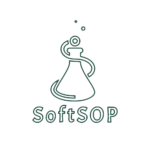Food safety regulations require food facilities to maintain the highest standards of cleanliness and sanitation throughout all production areas. One critical tool for achieving this is the Daily Employee Signoff Sheet, which serves as both a recordkeeping system and an accountability measure. This tool is especially important for compliance with the Food Safety Modernization Act (FSMA), which emphasizes proactive and preventive controls.
What is a Daily Employee Signoff Sheet?
A Daily Employee Signoff Sheet is a structured checklist used by employees to verify that all equipment, workstations, and production lines have been properly cleaned and sanitized before, during, and after shifts. It includes:
- A list of applicable equipment per area or production line.
- Daily checkboxes for cleaning and sanitizing tasks.
- Employee initials or signatures to confirm task completion.
- Supervisor verification for oversight and compliance.
This simple but powerful tool ensures that sanitation responsibilities are documented and traceable in case of inspections or audits.
Why It Matters for FSMA Compliance
The FSMA shifts the focus of food safety from reactive to preventive measures. A daily signoff sheet is an integral part of this approach because:
- Accountability – Employees are directly responsible for sanitation tasks, and supervisors can confirm accuracy.
- Verification & Documentation – Records provide proof that cleaning was completed consistently, a key requirement during FDA or third-party audits.
- Consistency – Standardized cleaning routines across all lines prevent missed steps or overlooked equipment.
- Traceability – In the event of contamination, records can help identify potential lapses or areas requiring corrective action.
Risks of Not Having a Daily Cleaning Signoff Sheet
Without a robust signoff process, food facilities face significant risks:
- Regulatory non-compliance with FSMA and other applicable CFR codes.
- Higher risk of contamination from unclean surfaces or equipment.
- Inability to demonstrate sanitation practices during audits or inspections.
- Loss of consumer trust and brand reputation if contamination leads to recalls.
Best Practices for Implementation
To maximize effectiveness, facilities should:
- Design signoff sheets specific to each area and production line.
- Include all equipment (e.g., conveyors, mixers, slicers, drains, utensils).
- Require employee initials and supervisor signatures daily.
- Store completed sheets in a document control system for retrieval during FSMA inspections.
- Regularly update the sheets to reflect new equipment, procedures, or regulatory changes.
Conclusion
The Daily Employee Signoff Sheet is more than just paperwork—it is a frontline defense against foodborne illnesses, regulatory non-compliance, and production downtime. By holding employees accountable and providing clear documentation, these sheets reinforce a culture of food safety and ensure facilities meet FSMA preventive control requirements.
Food companies that adopt and consistently enforce daily signoff procedures position themselves as proactive, compliant, and trustworthy partners in the global food supply chain.

